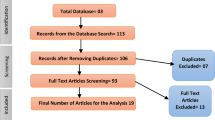Abstract
Background Whereas natural disasters more commonly occur in low-income countries, almost all studies on psychological consequences have been conducted in the Western world. In countries where resources are poor it is of importance to know which groups should be targeted for early intervention after a disaster. The study aims at assessing the prevalence of post-traumatic stress disorder PTSD and of post-traumatic symptoms among people afflicted by hurricane Mitch in Nicaragua and at identifying risk factors for PTSD symptoms 6 months following a disaster. Method: At four primary health care centres, 496 consecutive adult patients were interviewed 6 months after hurricane Mitch regarding PTSD symptoms (Harvard Trauma Questionnaire, HTQ), disaster experiences and post-disaster help-seeking. Results: All individuals resident in the area during Mitch were judged to have experienced a trauma fulfilling A criteria for PTSD. Regarding more specific traumas, 39% reported a close relative to be dead or seriously injured and 72% had their house partly or completely destroyed. Prevalence of PTSD ranged from 9.0% in the worst afflicted area to 4.5% in a less damaged area. From a dimensional perspective, PTSD symptoms according to HTQ 6 months after the disaster were significantly associated with the death of a relative (β-coefficient 0.257, P=0.000), a house destroyed (β-coefficient 0.148, P=0.001), female sex (β-coefficient 0.139, P=0.001), previous mental health problems (β-coefficient 0.109, P=0.009) and illiteracy (β-coefficient 0.110, P=0.009). Those with previous mental health problems (OR=4.84; 95% CI=3.04–7.66) were more likely than others to seek from help, any source whereas the opposite was true for illiterate people (OR=0.38; 95% CI=0.21–0.69). Of all respondents, 8.5% reported that they had thought of taking their lives, and illiterates (OR 2.84; 95% CI=1.12–4.37) and those with previous mental health problems (OR 2.84; 95% CI=1.12–4.57) were at particular risk for suicidal problems. One year after Mitch, half of those identified as PTSD cases at 6 months still fulfilled the criteria for a PTSD diagnosis. Conclusion: PTSD represents a serious mental health problem after a disaster. Those with illiteracy, females and those with previous mental health problems should be targets for early post-disaster intervention.
Similar content being viewed by others
Author information
Authors and Affiliations
Additional information
Accepted: 4 December 2000
Rights and permissions
About this article
Cite this article
Caldera, T., Palma, L., Penayo, U. et al. Psychological impact of the hurricane Mitch in Nicaragua in a one-year perspective. Soc Psychiatry Psychiatr Epidemiol 36, 108–114 (2001). https://doi.org/10.1007/s001270050298
Issue Date:
DOI: https://doi.org/10.1007/s001270050298




